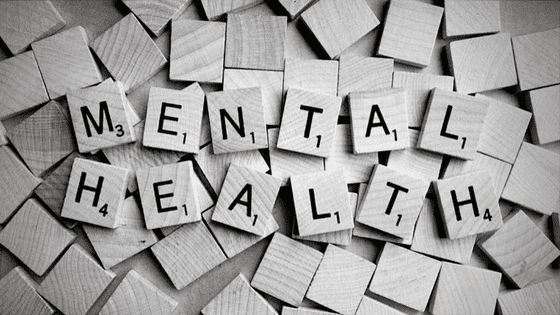Dreams of being a business owner
I’ve been dreaming about having my own business for as long as I can remember. I’ve known since I was a child that I would eventually become my own boss.

It stems back to an early memory from primary school. It was the school fete, and I was eight or nine. There was an ice cream van, and the students were to run it. I played the role of cashier; taking orders and payments, handing out change and generally being a mini lady boss. To say that I enjoyed it is an understatement. I think it was one of the most thrilling activities I’d ever done bar team sports. I’m pretty sure none of the other kids got a look in let alone a turn. I was loving it so much that my normally kind and sharing nature was overridden for the day. I was working and I LOVED it!
Fast forward a few decades, and my enthusiasm for business has definitely not waned. I founded Peach Business Management in 2010 and have been my own boss since. I knew that starting a business from scratch would be hard. At least I did rationally. I knew it would be stressful, and that earning an income wasn’t a given. I’d already been working with small business owners for ten years before I started my own.
But I was wrong.
The reality of being a business owner
Starting a business was tough. It was the hardest thing I’ve ever done. It was (still is sometimes) more stressful, challenging, slow and emotionally taxing than I could have ever anticipated. If you’re a business owner yourself, you’re probably nodding along. You know it. You know it takes time to build something good, and you’ll have to put more effort into it than any job could ever ask of you.
What I didn’t anticipate was how much my mental health would take a toll. I’m a different person to the one who started Peach seven years ago. I think that’s a good thing. I have turned myself inside out growing this business, and I know myself better now than ever before. I’ve grown into a stronger, more confident and resilient human being. I have so much respect for anyone who has grown a strong business.
I’ve made so many mistakes. I’ve learned from most of them, and let others fall behind.
How my business impacted my mental health
I started my business on a whim, with no real plan or financial resources. I had about $1000 in my bank account when I quit my job and threw caution to the wind, launching my business after a conversation in an olive grove with an incredible woman – Jane Seymore, the co-founder of Mount Zero Olives. She was my first client and a big inspiration for me.
I knew it would be hard, and it was. In the first few years my financial health took a massive hit. I was living hand to mouth while slowly building up a portfolio of clients. A few years into Peach, one of my clients went into liquidation owing me about ten thousand dollars, which I have never recovered. It taught me an important lesson in choosing clients and trusting my gut.
Unsurprisingly, looking back on it, that stressful period in my life brought on some pretty serious mental health issues. I became depressed, isolated and exhausted. Depression had been an infrequent visitor to my life previously, but during this period of my life it was almost constant. Working on my own, with no life partner to support me was hard going. I leaned on my friends in the early days, but I felt like a burden. Many of them didn’t understand my issues because they were in stable jobs. And those who did have their own businesses understood, but they were all going through their own challenges. My anxiety was rife and I was getting barely enough sleep to function. Without the emotional support of my parents and my sisters I don’t know how I would have coped.
I felt like a failure. And I felt alone.
Managing my mental health
Fast forward five years and I’m doing pretty well. My business is thriving, financially healthy and fulfilling. Most of my clients have been working with me for five years or longer, and I enjoy a flexibility in my work that I know many would be envious of. It’s hard work, but I’m mentally well at the moment, which is a relief. I need to manage my mental health constantly to keep my depression and anxiety at bay. It’s not a set and forget thing for me.
I’m no mental health expert, and I don’t have any mental health training. But I do spend a lot of time counselling business owners. It’s part of my role as their business manager and mentor. I’ve always been a good listener. A shoulder to cry on, with big ears to match my big empathy muscle. I inherited it from my mum. I’ve learned a lot about the mental health of small business owners, and it’s not good. There’s a lot of you doing it tough out there.
If your business is experiencing growth, I’m pretty confident that you’re experiencing stress. It goes with the territory. If you’re a business owner, especially if you’re an employer, your health is critical to your business. You’ve made a commitment to your staff and your customers, and you need to honour that by being on top of your game. And your mental wellbeing is a huge part of that.
Strategies to manage your mental health
I believe that one of the best things you can do for your mental health is to pay attention to it. The fact that you are reading this article shows that you are interested in keeping yourself mentally well. I’m sure your mind is thanking you already.
Here’s ten things that have helped me manage my mental health, that might help you too:
- Getting enough sleep – this is number one.
You need to do everything you can to achieve this. Try meditation, a sleep routine, a sleep app, essential oils, reading before bed, whatever works for you. Sleeping medication might be what you need, maybe just for a short period. Get advice from your GP (especially if you’re prone to addiction). I’ve found that the earlier I go to bed, the easier I get to sleep. If I go to bed after 1130, forget it.
2. Walking my dog Flynn
I think it’s the exercise as well as the joy I feel seeing my dog having fun. Laughing is an important part of mental health and my dog cracks me up all the time. He crazy.
3. Hanging out with supportive friends who make me feel good
Spending time with people who make you feel worthy and loved is gold. You experience enough doubt in business, you don’t have time to doubt how your friends feel about you.
4. Having control over my finances
Lack of financial control has a huge impact on mental health. And it’s not about earning lots of money, it’s about being in control of what you do earn. Do yourself a favour and read The Barefoot Investor. It’s a great approach to money.
5. Setting business goals
Setting goals for yourself gives you direction. Tracking those regularly gives you a sense of making progress towards something. If you aren’t able to do this alone, find a great business mentor or a friend who wants to support you.
6. Eating well
You are what you eat. Plain and simple. Junk food is called junk food for a reason. While you’re at it, thank a farmer for putting fresh food on your plate. They keep us alive and work back-breakingly hard so we have food on our plates.
7. Reducing alcohol and caffeine intake
Alcohol and caffeine are the go to stress reliever for many of us, including me. You’re intelligent. You know it’s not a healthy way of blowing off steam or pumping yourself up. Cutting down can be a good way to start.
8. Seeing a psychologist
Psychologists are awesome. I have sought the help of a few psychologists who have given me really useful tools to help me cope when things go wrong. Finding one that suits your personality and your needs is key.
9. Exercise of any kind
Walking for thirty minutes a day is proven to have huge mental and physical health benefits. I think the trick is to find something you really enjoy and do that.
10. Learn something new
The positive psychology movement has research to show that learning has positive impacts on your mental health. I do a lot of learning, some of it is dry business stuff. But I also love learning about philosophy, emotional intelligence and hearing from people who work in interesting fields. I’m a huge fan of The School of Life and their incredible education. They also introduced me to the mindfulness courses run by The Mind Room in Melbourne. A morning with them changed my mental health.
My hope is that by sharing my challenges with mental health, I create an opening for you to do the same. I’d love to hear about how you’ve managed your mental health, and to hear about your challenges. Being a small business owner is tough. It’s also hugely rewarding, which is why we stick at it. I think the “positivity” movement, especially in business media, has a lot to answer for. Being optimistic is really important as a business owner. But that’s not the same as throwing a positive spin on everything, especially if you’re depressed.
If your mental health is suffering, please seek help. Get in touch with your GP to arrange a mental health care plan if things are serious. There are incredible mental health specialists out there who can help you to get through your dark times. There’s also some fabulous resources for small business owners at Heads Up, in collaboration with Beyond Blue.
The important thing is to talk about your mental health. You’re not alone.




















